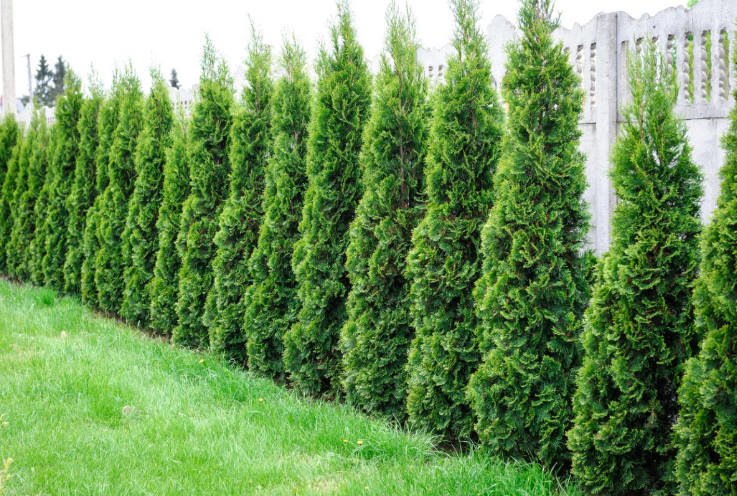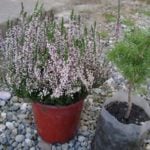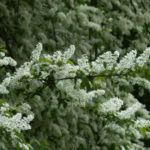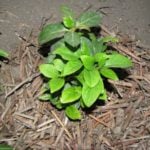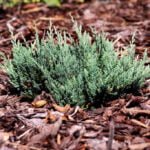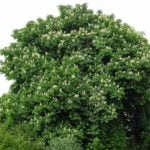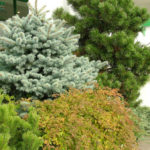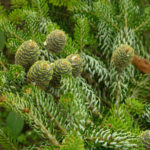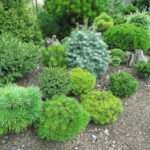More and more often in our gardens you can see various coniferous trees. Along with firs and pines, we have a variety of thuja, juniper, cypress and other very beautiful plants that remain decorative throughout the year.
As a rule, such plants are planted for a long time, so it is important to choose and prepare the right place for a new pet, as well as to plant it correctly. Let’s consider this process on the example of Thuja Occidental.
Planting thuja
Thuja Occidental is very popular with gardeners. It is characterized by good hardiness and winter hardiness, many varieties have been bred that diversify our gardens. This plant is suitable for group and single plantings, and it can be planted as a hedge. Western thuja will grow in the shade, but it is better to choose a well-lit place or partial shade. Prefers loam, enough nutrients, not too absorbing moisture.
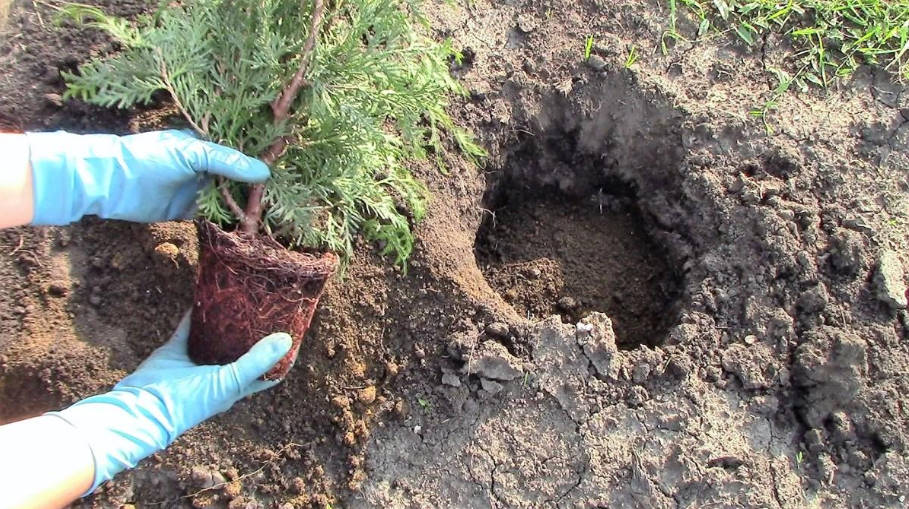
The root system of thuja is compact
This plant has a compact root system, so the gardener can experiment a little with the place of its permanent residence. On the other hand, thuja are really long-lived and can grow in one place for up to 100 years.
The best time for planting is spring. If it so happens that you need to plant a thuja plant in the fall, you should be more attentive to the plant and take into account some nuances. First, the landing deadline is October. Secondly, an immature tree should be protected: cover the circle of the tree trunk with fallen needles or a good layer of compost, cover the crown from the cold and sunburn with burlap.
The landing pit should be about twice the size of a clod of earth with roots. If your soil is very different from the desired one, it needs to be improved. In sandy soils, half of the removed land is replaced with equal parts of peat and turf soil, heavy loam is diluted with sand and peat, and on peatlands, sand and loam are added to the planting mixture. Also, thuja responds well to fertilizing and it is useful to add it when planting 200-300 g (7-10.55 fl. oz) of complex fertilizer per plant.
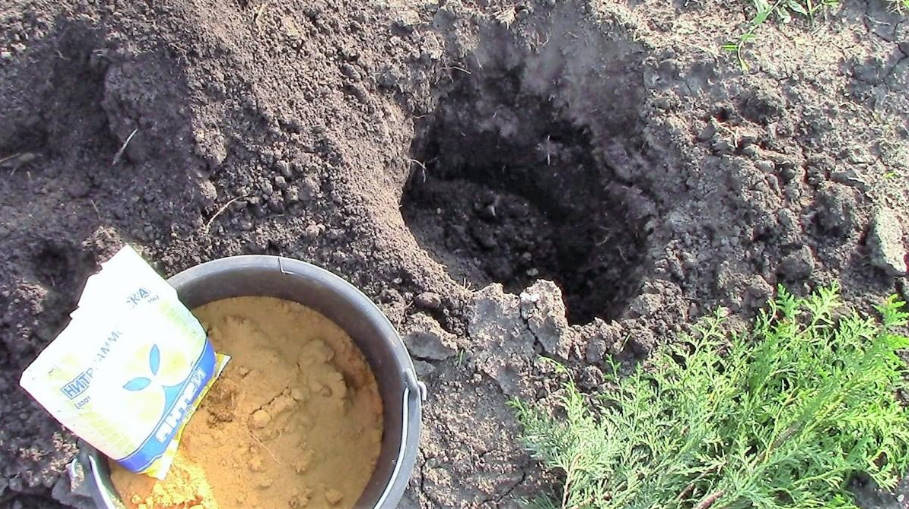
Prepare the soil mixture
Before planting, it will be good to soak the seedling for 2-3 hours. To do this, it is placed directly in a container in a bucket and filled with water.
Partially fill the hole with the soil mixture, remove the plant from the pot and set it so that the root neck is not buried.
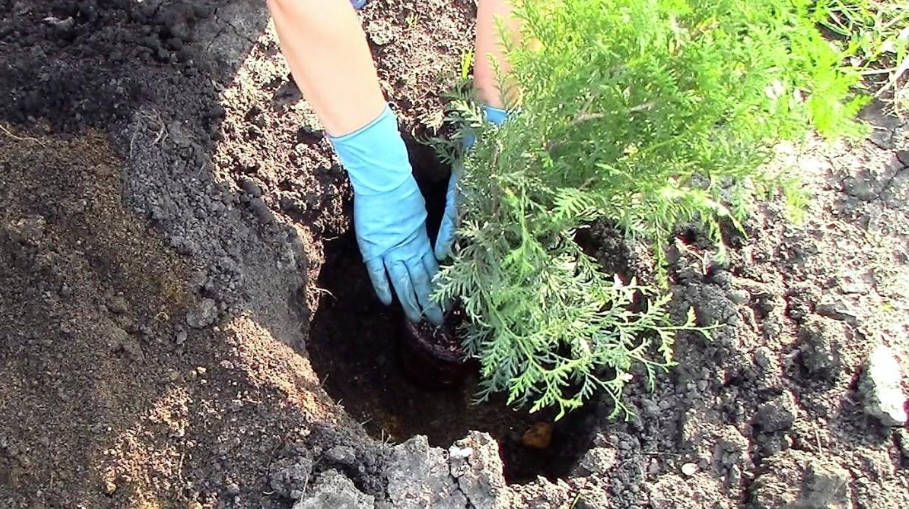
The root neck of the thuja is not buried
Then fill in half of the remaining mixture and carefully pour. After that, the remains of the earth are filled in and carefully compacted.
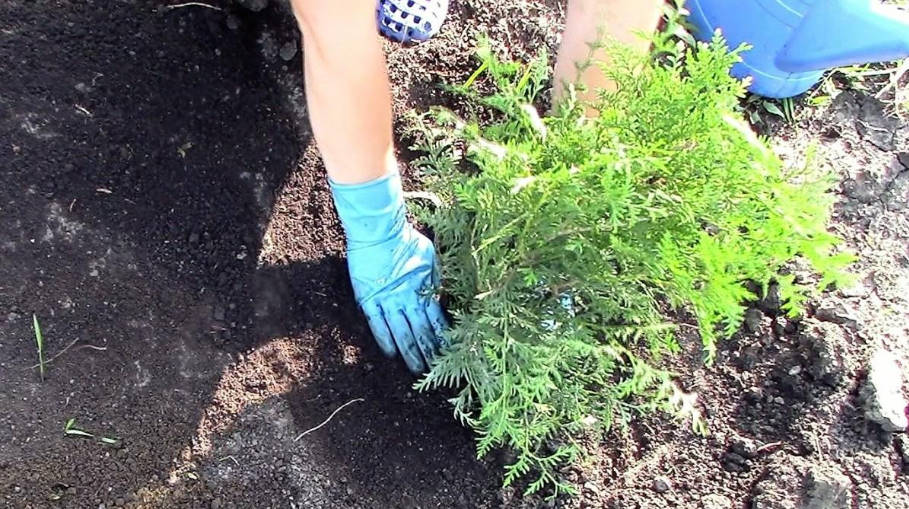
The ground around thuja is compacted
Now the young plant requires regular watering, at least 5-6 liters (1.3-1.6 liquid gallon) of water once a week. Thuja is very fond of sprinklers, so do not deny her this. The dust that settles on the small scales clogs them, they dry out, look ugly, and the plant as a whole suffers. And with this method of watering, the thuja is cleaned and feels good. By the way, it is because of this feature that you should not plant near busy roads, where it can easily get dusty.
Do you like coniferous trees? Share with us in the comments where your thuja grows in the garden.
